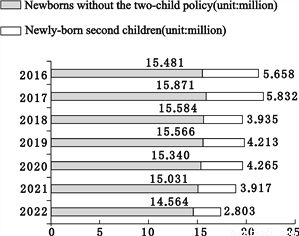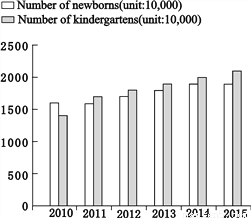
�����ģ�--When is Henry��s birthday party, Lynn?
--The 18th, _______ about three o��clock in the afternoon.
A. in B. at C. on D. to
B ��������������⣺--�����������������ɶ���ʲôʱ��-ʮ�˺����磬��Լ���㡣at��Ҫ�ͱ�ʾʱ���Ĵ����ã�in��Ҫ�ͱ�ʾһ��ʱ��Ĵ����ã�on��Ҫ�����ڣ������һ�죬����һ������������ϣ����������ε�ʱ�����á���ѡB�� �Ķ��쳵ϵ�д�
�Ķ��쳵ϵ�д�
| �꼶 | ���пγ� | �꼶 | ���пγ� |
| ��һ | ��һ��ѿγ��Ƽ��� | ��һ | ��һ��ѿγ��Ƽ��� |
| �߶� | �߶���ѿγ��Ƽ��� | ���� | ������ѿγ��Ƽ��� |
| ���� | ������ѿγ��Ƽ��� | ���� | ������ѿγ��Ƽ��� |
��Ŀ������Ӣ�� ��Դ���˽̰���꼶Ӣ��£���ĩ��ϰ Unit3-Unit5 ���ͣ���ѡ��
��Could you please help me open the windows?
��Yes, I ________.
A. must B. can C. could D. will
B �������� ���⣺�������ܰ��Ҵ����𣿡����õģ����ԡ�A. must���룻B. can���ԣ�C. could�ܹ���D. will���ᡣCould you please do sth? ��ʾһ������ò��������˼�ǡ��������������𣿡�could�����ﲻ��can�Ĺ�ȥʽ�����DZ�ʾһ�ָ���ί����������������϶���ش�ʱ��ֻ����can��can��t���ʴ�ΪB���鿴�𰸺ͽ���>>
��Ŀ������Ӣ�� ��Դ��2018�꽭��ʡ�����б�ҵ��ѧ����Ӣ���Ծ�(ʮ)���� ���ͣ����
�Ķ������ͨ������Ķ��ģ�Ȼ����ݶ������ݣ������º����Ŀո�������һ����ǡ���ĵ��ʡ�����ʱ���д�ڴ����Ӧ��ŵĺ����ϡ�ÿ���ո�ֻ����һ�����ʡ�
Terry Fox was born on July 28, 1958 in Canada��He was a determined little boy who never liked to miss a day of school��Fox enjoyed playing baseball and basketball very much in his free time��In secondary school he won the Athlete of the Year Award�� He wanted to be a physical education teacher��
Terry Fox's future changed in 1977 when doctors told him there was cancer in his right knee��To stop the spread of cancer, doctors amputated (��֫) most of his leg��Fox learned how to use an artificial leg, and three weeks after the operation, he was walking��
Terry Fox made a plan to raise money for cancer research by running across Canada��His goal was to raise $1 from every Canadian��People said it was a crazy idea but Terry could not be stopped��He started his running on the Atlantic coast in Newfoundland in April 1980 and planned to finish on the Pacific coast in September��
The people of Newfoundland were welcoming and generous��Fox was treated to many meals at people's homes��A small town of 10,000 people raised $10,000��Fox ran about 45 km each day��He ran through Nova Scotia, New Brunswick, Quebec and Ontario��As he ran he gave speeches about cancer and how the money he collected would go to finding a cure for cancer��The 8,000 people in the town of Gravenhurst donated $14,000��By the time he ran half-way across Canada he had raised $11.4 million��
At the end of August he thought he was getting a bad cold and stopped running for a few days��Doctors said the cancer had come back and was now in his lungs��Terry went into hospital for treatment��People kept donating money��There were 24 million people in Canada in 1980��Over $24 million had been raised by February 1981��Terry had met his goal��The treatment did not cure Terry�� He died on June 28, 1981��That September, the first Terry Fox Run was held in Canada��Terry Fox Runs are now held yearly in 60 countries and millions of people have taken part��More than $ 360 million has been raised for cancer research��The donations for cancer research don't stop��His dream lives on��
The Man Who Never 1. Up �� Terry Fox | |
Personal information | ��He was born on July 28, 1958 in Canada�� ��He worked hard at school and enjoyed playing baseball and basketball in his free time�� ��He died of cancer on June 28, 1981�� |
Main events | ��In secondary school he won the Athlete of the Year Award�� ��In 1977, cancer was found in his right knee and he 2. his right leg in the operation, but he was walking again three weeks later with an artificial leg�� ��In April 1980, he started running from Newfoundland in the east of Canada all the way to the 3. coast to raise money for cancer research�� ��In August 1980, doctor found the cancer had 4. and this time it was in his lungs�� ��After he died, an event called Terry Fox Run is held 5. a year in 60 countries and millions of people have taken part�� |
�鿴�𰸺ͽ���>>
��Ŀ������Ӣ�� ��Դ��2018�꽭��ʡ�����б�ҵ��ѧ����Ӣ���Ծ�(ʮ)���� ���ͣ���ѡ��
"I" ________ the fourth letter in the word "advise"�� There is also ________ "s" but it doesn't make ________ /s/sound��
A. am; an; a
B. am; an; an
C. is; an; a
D. is; a; an
C �����������⣺��I���ǵ���"advise"�ĵ��ĸ���ĸ��Ҳ��һ��"s"������������ /s/��������"I"����ָ��ĸ��������������is�������ڴ�a/anһ������ʾ��ָ��a���ڸ������ؿ�ͷ�ĵ��ʻ���ĸǰ��an����Ԫ�����ؿ�ͷ�ĵ��ʻ���ĸǰ��"s"��Ԫ�����ؿ�ͷ��������an�� /s/�Ǹ������أ�������a����ѡC�鿴�𰸺ͽ���>>
��Ŀ������Ӣ�� ��Դ��ţ�����ְ棨8A��Ӣ��ڶ���Ԫ���Ծ� ���ͣ��Ķ���ѡ
I think the Buddy Club is great. I really enjoy talking with the older students about school life and growing up. They can tell me a lot. One student told me how he relaxed (����) before exams. Another student told me about great websites about learning History and English.
The Buddy Club is also a good place to just forget about school altogether! One of the older students taught us origami (�ձ���ֽ). We made paper planes, birds and hats together.
The table tennis tournament��������) was a great idea. I didn��t do very well, but I learnt a lot from watching the doubles tournament won by a fourteen-year-old girl and a seventeen-year-old boy.
Last year, we had the annual (ÿ���) Buddy Club Picnic. Everyone enjoyed the games we played. After I learnt how to fish, I caught two fish in the lake. I think it might be a good idea to change the Buddy Club Picnic to a weekend camping trip. We could learn how to put up tents and how to find our way through a forest. Many of the older students know how to do this already, and I think they would like to teach the younger students.
I want to say again how much I enjoy the club. When I��m older, I will make friends with younger students. Then, I can tell them all about school life and growing up.
1.What does the writer enjoy doing at the club?
A. Learning Japanese.
B. Talking to older students.
C. Losing at table tennis.
D. Surfing the Internet.
2.What websites did the writer learn about?
A. Paper planes. B. Origami.
C. History and English. D. Relaxing.
3.Did the writer win the table tennis tournament?
A. No, and he was very unhappy. B. No, but came second.
C. Yes, he won the doubles. D. No, but he enjoyed watching it.
4.What does the writer want to learn?
A. How to put up a tent and make a fire.
B. How to put up a tent and find his way through a forest.
C. How to make clean water and find his way through a forest.
D. How to find his way through a forest and climb a mountain.
1.B 2.C 3.D 4.B �����������½�����������ΪBuddy Club���ֲ��dz��ã��ھ��ֲ��������ܶ����飬Ҳѧϰ�ܶ࣬�ܽ���������������ѣ��������ǹ���ѧУ������ͳɳ��� 1.����I really enjoy talking with the older students about school life and growing up.��֪��ϲ���ʹ�һ���...�鿴�𰸺ͽ���>>
��Ŀ������Ӣ�� ��Դ��ţ�����ְ棨8A��Ӣ��ڶ���Ԫ���Ծ� ���ͣ���ѡ��
--________ do you go to the library? --Three times a month.
A. How long B. How often C. How far D. How soon
B �����������⣺��������ȥһ��ͼ��ݣ�����һ�������Ρ�����Three times a month.��֪�˴���Ƶ�����ʣ��������ʴ�how often����ѡB���鿴�𰸺ͽ���>>
��Ŀ������Ӣ�� ��Դ��ţ�����ְ���꼶��Ӣ����ĩ����ר����ϰ-����ĸ��� ���ͣ��������
UNICEF is part of the United Nations. It was set up in Europe in 1946. At that time , many c1. lives were changed because of the war.
Now UNICEF works in over 190 countries and areas. It helps g2. , communities and families make the world a better place for children.
UNICEF wants all children to live h3. so it provides them with clean water and food, and tries to p4. them from getting illnesses. It works to stop the s5. of some serious diseases, like AIDS.
UNICEF also believes it important for children to receive basic education so it helps them a6.
school. It works for the equal r7.of girls and women too.
We can help by donating money or working as v8. We can raise money by selling Christmas cards and o9. other activities. We can help a UNICEF officer learn about the c10. of the local people to improve their lives.
1.children��s 2.governments 3.healthily 4.prevent 5.spread 6.attend 7.rights 8.volunteers 9.organizing 10.conditions ����������������һƪ�����ģ�������Ҫ���������Ϲ���ͯ�����Զ�ͯ����ͽ��������������ҪӰ�죬������������һ...�鿴�𰸺ͽ���>>
��Ŀ������Ӣ�� ��Դ��ɽ��ʡ2018����꼶�п���Ϣ��̾�ѹ���Ӣ���Ծ������� ���ͣ��ش�����
���Ķ�����ͼ�ģ���Ҫ�ش��������⣬������д�ڴ����Ӧ��λ���ϡ�
2nd Child��An Extra Pair of Chopsticks?
(System category��News)
It's almost a year since China introduced the universal two?child policy.Statistics show the number of newborns in the first half of 2016 rose by 6.9 percent year?on?year��with newly?born second children accounting for more than 40 percent of the total.Is Chinese society well?prepared for the policy? The answer may be not completely positive.
Steady Population Growth
According to the Chinese Academy of Social Science��and estimated(Ԥ���) 5.658 million babies will be born in 2016��and the chart below is a prediction for the following years.


Are Schools Well?prepared?
With China's universal two?child policy��the increasing number of newborns in the county has led to a greater demand for kindergarten places.How to enable every child to attend school and receive a good schooling has therefore become an issue of urgency.

1.What percentage of newly?born babies are second children in the first half of 2016?
________________________________________________________________________
2.When will the baby boom arrive?
________________________________________________________________________
3.Were kindergartens enough for newborns in 2015?
________________________________________________________________________
4.Why will many schools be short of teachers?
________________________________________________________________________
5.Do you think it's a good idea to have a second child in your family? Why do you think of it?
________________________________________________________________________
1.More than 40%. 2.In 2017. 3.Yes��they were. 4.Because many female teachers are expected to have a second child. 5.�𰸲�Ψһ�� ����������ƪ�����Ѷ����У���Ҫ�����й����Ŷ�̥���ߺ��˿������Լ�����Ϊ��̥���ߺ���������ֹۡ� 1.ϸ�������⡣����S...�鿴�𰸺ͽ���>>
��Ŀ������Ӣ�� ��Դ������������ѧУ2018����꼶�п�ģ��Ӣ���Ծ� ���ͣ���ѡ��
They spend as many hours as they have____ their English
A. improving B. improved C. improves D. to improve
A �����������⣺���ǻ������Ǿ����ܶ��ʱ�������Ӣ��ˮƽ�����鶯����ʽ�����⡣spend some time doing sth.����ʱ����ij�£��̶�������ݾ���ṹ����֪ѡA���鿴�𰸺ͽ���>>
����ʡ������Υ���Ͳ�����Ϣ�ٱ�ƽ̨ | �����к���Ϣ�ٱ�ר�� | ����թƭ�ٱ�ר�� | ����ʷ���������к���Ϣ�ٱ�ר�� | ������Ȩ�ٱ�ר��
Υ���Ͳ�����Ϣ�ٱ��绰��027-86699610 �ٱ����䣺58377363@163.com